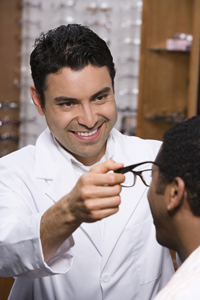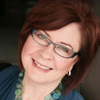
In the past month, while working with a local optometrist, I've reviewed between 20 and 30 online advertisements for opticians. Under qualifications for the position almost all of them listed—ABOC preferred. I was rather surprised and pleased to discover this. Some research turned up a survey done by the American Board of Opticianry stating that 75 percent of eyecare practitioners gave preference in hiring to certified applicant, even though they paid higher beginning salaries to ABO certified applicants.
Our patients' antenna is up after reading and hearing the various consumer report articles and 60 minute shows targeting our industry. It shouldn't surprise us that our patients have become more cautious. (Are people ever going to forget that 60 Minutes Luxottica session? I'm tired of patients mentioning it—are you?)
There is clearly a financial benefit to be gained by hiring qualified and knowledgeable optical experts. ABOC is one of the best ways to be sure prospective employees are qualified professionals. ABOC candidates have demonstrated a level of discipline and learning by taking this national examination as well as an interest in their career and the field of vision care.
It's just too darned easy today for patients to walk out the door with their Rx in hand when they don't have full confidence or interest in our optical dispensaries or personnel.
A 2012 research report by the Management and Business Academy (MBA) for Eyecare Professionals reports that ECPs performed 67 percent of all the eye exams done in the U.S. However they only sold 45 percent of the prescription spectacle lens sales. This indicates that one in three eyeglass prescriptions of independent ECPs are taken out the door to other providers. It could be even higher in 2015 versus 2012 when this research was done.
My own recent experience is that many ECP's capture rates hover around 50 to 55 percent range and are "stuck" within a few percentage points plus or minus. There is clearly an opportunity for improvement.
The MBA for Eyecare Professionals research study provided an example of the financial impact of raising capture rates.
"A typical optometric practice with $750,000 annual gross revenue with a 67 percent capture rate sells 1,454 pairs of prescription eyewear, generating $330,000 in sales. If the practice were to increase their capture rate to 80 percent, annual revenue jumps $64,072. Practice management consultants say a well-managed optical dispensary can achieve a 90 percent capture rate." |
I believe having an ABOC optician on staff can move your capture rate in the positive direction as well as increase patient satisfaction and lower expenses from redos. An article co-authored by an OD and ABOC is good evidence this can be true: Increasing Eyewear Capture Rate: A Team Effort, by Chad Waggoner, OD and Kimberly Manthe, ABOC (Review of Optometric Business, August 2014). Dr. Waggoner's practice reports that after putting in place a team effort on improving capture rates they were able to move their capture rate from 45 percent to 58 percent for an increased revenue of almost $110,000. Their goal for 2015 was to increase an additional 5 percent.
Okay. It's obviously a good decision to hire an ABO certified optician; therefore it should also be obvious that all opticians should become ABO certified. But there is another important point here. The depressing reality is that ABOC means nothing to our patients, until we make it relevant to them. They don't know that an ABO certified optician understands more about the anatomy of the eye, optics and the effect of pantoscopic tilt or base curves on their vision. They don't know they would receive a higher quality of care and professional service by purchasing their eyewear in your office with an ABO certified optician assisting them—until we tell them.
An ABO certificate should be proudly displayed in the dispensary much like the doctors diplomas in the exam rooms. However, a certificate on the wall is not enough. The staff, opticians and doctors must communicate and demonstrate their skills and knowledge to their patients every day.
It would be very powerful for prescribing doctors to begin saying to their patients, as they are handing them their new prescription; "We have an excellent board certified optician(s) in our optical area. I hope you will work with him/her because then I will know you are getting the best optical quality and care in producing this prescription."
We must begin making the patient experiences in our practices so positive that our patients want to stay and purchase their eyewear. Our ABO and other eyecare professionals must all play a role in enhancing the patients experience to raise their confidence and interest in our optical galleries and boutiques.
My favorite quote from the abo-ncle.org website is "You can't buy it; you have to earn it." Certification is a professional distinction. It is reassurance to patients that their eyewear needs will be handled carefully and competently.
It is essential to understand that the benefit of ABOC is only fully realized when we educate our patients that ABOC means they are being taken care of by a competent, educated and certified professional.

Mindi Lewis, MA, ABOC, FNAO, is an industry professional with experience from exam room and dispensing table to marketing and national account management. She has an AS in Optometric Technology, a BS in Allied Health Education, and was an Optometric Technology Instructor at St. Petersburg College, Florida. She has worked for SOLA Optical, Carl Zeiss Vision and Essilor, and is currently a consultant and speaker, and Managing Editor for Jobson Medical Information's Opticians Handbook. To contact: [email protected]













